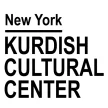Sevinaz Evdike, filmmaker
 Sevinaz Evdike was born 1992 in Serekaniye, Rojava. She studied film directing at the Cigerxwin Academy in Diyarbakir, Turkey. She served as co-director of the Rojava Film Commune. She co-founded the Rojava Film Festival.
Sevinaz Evdike was born 1992 in Serekaniye, Rojava. She studied film directing at the Cigerxwin Academy in Diyarbakir, Turkey. She served as co-director of the Rojava Film Commune. She co-founded the Rojava Film Festival.
Evdike directed the short film Mal (Home, 2018) in Raqqa shortly after the Syrian Democratic Forces liberated the city from Islamic State. She served as producer of Shero Hinde’s Love in the Face of Genocide (2020) and as executive producer on Antonia Kilian’s The Other Side of the River (2021). She was production assistant on Alba Sotorra’s The Return: Life after ISIS (2021). The Wedding Parade is her first feature film.
Evdike now works as coordinator of Kezi, a collective of Kurdish and international women filmmakers, based in Rojava. They educate filmmakers and screen films all over Rojava, based on the ideology of democratic confederalism, women’s liberation and protecting ecology.
Evdike promotes the screening of Kurdish films around the rest of the world, and she lectures on filmmaking, screenwriting, and production. In 2020 she gave the “Freedom Lecture” on the Rojava Film Commune at the Rotterdam Film Festival. She was an official artist with Rojava Film Commune at Documenta 15 in Kassel, Germany.
Director’s statement:
“I was born in Serekaniye. In recent years, like most of the city’s residents, I have been forced to flee the city twice. In 2012 radical groups invaded the city; they would later be known as ISIS. I stayed away for five years. My father and brother remained at home and refused to leave. After a long journey, during which I had no news of my family, I returned in 2016, and we rebuilt the house. Then in October 2019 the Turkey-backed invasion of the city forced my family and me to flee once again. Today we remain displaced persons and cannot return due to the ongoing occupation. We are refugees in our own country.
“The Wedding Parade is based on real-life stories, with details that I collected from my family and friends over ten war-torn years: stories of death and displacement but also struggle and resistance.
“Syria’s Kurds were long repressed by the Ba’ath government. When the Syrian war started in 2011, we in Rojava saw the possibility of putting into practice a political model called Democratic Confederalism. It is a system of self-organization, based on the principles of autonomy, direct democracy, political ecology, women’s liberation, multiculturalism, self-defense, self-governance, and cooperative economy.
“In this new context, the situation of women improved, with the support of the Autonomous Administration of North and East Syria. My own case is an example of the self-administration’s support for the arts and culture. I can make films with the Rojava Film Commune, which we established in 2016. The Commune has produced several films by young local filmmakers, an unbelievable achievement because, before 2013, making films was forbidden to all of us.”















